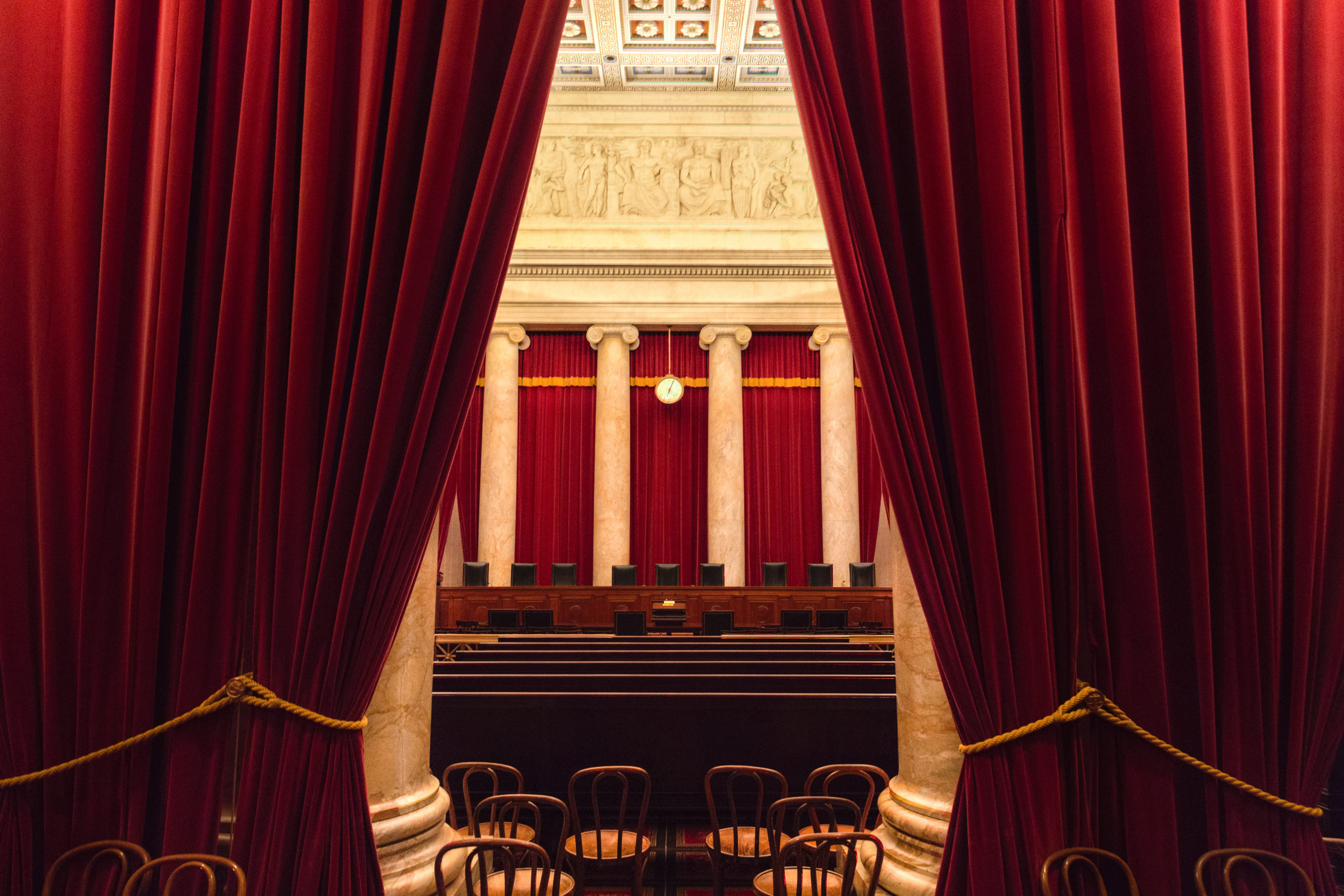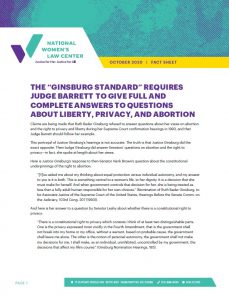Abortion rights, women of color, and LGBTQIA+ people are under attack. Pledge to join us in fighting for gender justice.

 Claims are being made that Ruth Bader Ginsburg refused to answer questions about her views on abortion and the right to privacy and liberty during her Supreme Court confirmation hearings in 1993, and that Judge Barrett should follow her example.
Claims are being made that Ruth Bader Ginsburg refused to answer questions about her views on abortion and the right to privacy and liberty during her Supreme Court confirmation hearings in 1993, and that Judge Barrett should follow her example.
This portrayal of Justice Ginsburg’s hearings is not accurate. The truth is that Justice Ginsburg did the exact opposite. Then-Judge Ginsburg did answer Senators’ questions on abortion and the right to privacy—in fact, she spoke at length about her views.
Here is Justice Ginsburg’s response to then-Senator Hank Brown’s question about the constitutional underpinnings of the right to abortion:
“[Y]ou asked me about my thinking about equal protection versus individual autonomy, and my answer to you is it is both. This is something central to a woman’s life, to her dignity. It is a decision that she must make for herself. And when government controls that decision for her, she is being treated as less than a fully adult human responsible for her own choices.” (Nomination of Ruth Bader Ginsburg, to be Associate Justice of the Supreme Court of the United States, Hearings Before the Senate Comm. on the Judiciary, 103rd Cong. 207 (1993)).
And here is her answer to a question by Senator Leahy about whether there is a constitutional right to privacy:
“There is a constitutional right to privacy which consists I think of at least two distinguishable parts. One is the privacy expressed most vividly in the Fourth Amendment, that is the government shall not break into my home or my office, without a warrant, based on probable cause, the government shall leave me alone. The other is the notion of personal autonomy, the government shall not make my decisions for me, I shall make, as an individual, uninhibited, uncontrolled by my government, the decisions that affect my life’s course.” (Ginsburg Nomination Hearings, 185).
Additionally, then-Judge Ginsburg had a very extensive record of opinions and articles when she appeared before the Judiciary Committee, giving Senators an ample basis on which to determine her views on important legal issues – which is not the case with Judge Barrett. As the 1993 Judiciary Committee report on the Ginsburg nomination said:
“[E]ach member of the committee had ample means, prior to Judge Ginsburg’s hearing, to discover much pertinent information—indeed, the most pertinent information—about Judge Ginsburg’s judicial approach and method. In more than 300 signed appellate opinions, and more than three score articles, Judge Ginsburg told the Senate and the American people an enormous amount about herself even before the hearings opened.” (Ginsburg Nomination Rept., 40).
Indeed, the Judiciary Committee’s report on the Ginsburg nomination concluded that “the committee knows far more about Judge Ginsburg’s views on reproductive rights than it has known about any previous nominee’s. Judge Ginsburg’s record and testimony suggest both a broad commitment to reproductive freedoms and a deep appreciation of the equality and autonomy values underlying them.” (Nomination of Ruth Bader Ginsburg, to be Associate Justice of the Supreme Court of the United States, Sen. Exec. Rept. No. 103-6, at 39 (1993)).
Attempts to claim a “Ginsburg standard” that would allow Judge Barrett to refuse to explain her views on the rights to privacy, liberty, and abortion are disingenuous excuses.
Rather, Judge Barrett should follow Justice Ginsburg’s example and be forthcoming in her confirmation hearings. She must answer whether or not she believes the Constitution protects the individual right of all people to make personal decisions about their bodies and relationships, including the right to use contraception and to have an abortion.
